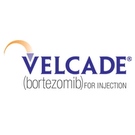
The International Myeloma Working Group, a group of top myeloma doctors, recently published a report identifying risk factors for disease progression in patients with the multiple myeloma precursor diseases, monoclonal gammopathy of undetermined significance and smoldering myeloma. In addition, the myeloma experts established guidelines for the monitoring and management of these two conditions. This article, Part 1 in a series, covers the results for monoclonal gammopathy of undetermined significance. Part 2 will cover the results for smoldering myeloma.
The …
Read the full story »

A recent study conducted in Spain demonstrated that for multiple myeloma patients treated with Velcade, prior vincristine-based treatment and the absence of neurological monitoring are factors that may increase the risk of developing nerve damage in their limbs.
The study authors suggested that patients be given a clinical and neurological assessment prior to treatment with Velcade. If the patients’ resulting score is high enough to suggest the development of a severe form of Velcade-induced nerve damage, patients should continue to …
Read the full story »

A recent study suggests that relapsed/refractory myeloma patients with abnormal plasma cells in the blood prior to therapy have a more aggressive form of multiple myeloma. Furthermore, the study authors speculated that if the number of abnormal plasma cells did not decrease following one cycle of therapy, it may be indicative of treatment resistance.
These findings were presented at the European Hematology Association (EHA) meeting in Barcelona, Spain, last month.
Multiple myeloma is a disease characterized by abnormal plasma cells. …
Read the full story »

The results of a study comparing the outcomes of multiple myeloma patients receiving Velcade as part of their initial therapy suggest that certain chromosomal abnormalities influence patient responses to Velcade. The results also indicate that Velcade may be particularly effective in delaying progression of myeloma in patients with chromosomal abnormalities.
The findings were presented at the European Hematology Association (EHA) meeting in Barcelona, Spain.
The study aimed to shed light on the controversial issue regarding appropriate initial therapy regimens, also …
Read the full story »

The results of a recent study suggest that donor stem cell transplants may not be necessary as part of first line therapy for newly diagnosed multiple myeloma patients. These findings were presented at the recent European Hematology Association (EHA) meeting held in Barcelona, Spain.
Despite its frequent use in the treatment of multiple myeloma, stem cell transplantation remains a risky procedure with many possible complications.
Patients can either receive their own stem cells during this procedure (autologous stem cell transplant) …
Read the full story »

At the 15th annual European Hematology Association (EHA) meeting, held June 10 to 13 in Barcelona, Spain, physicians and researchers gathered to share developments in the field of hematology, including multiple myeloma.
The research presented at the meeting covered all areas of hematology, which is the study of blood, blood-forming organs, and blood-related diseases. Due to the broad number of interests and studies, the meeting was divided into different sessions over the course of the four days, with most of …
Read the full story »

Treatment of newly diagnosed multiple myeloma patients with a combination of cyclophosphamide (Cytoxan), Velcade (bortezomib), and dexamethasone (Decadron) (abbreviated CyBorD) appears to be effective and safe. The findings were presented June 5 in a poster session at the American Society of Clinical Oncology (ASCO) annual meeting.
The study compared CyBorD with Revlimid (lenalidomide)-dexamethasone treatment (abbreviated RD) and cyclophosphamide-Revlimid-dexamethasone treatment (abbreviated CRD). The results of the Phase 2 trials indicate that RD and CyBorD treatment were similar …
Read the full story »
